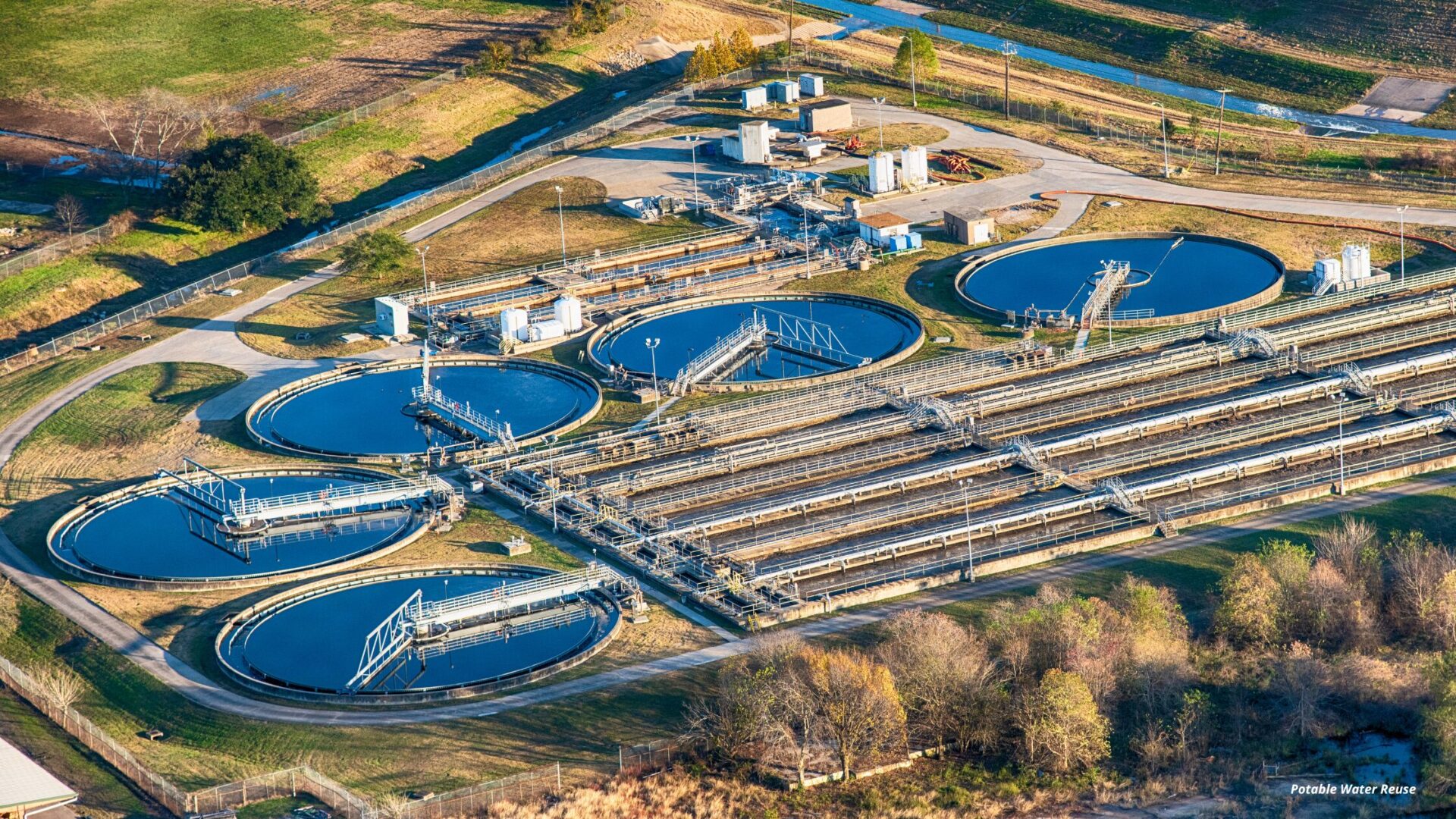BLOG | Bluephage
Namibia’s Path to Direct Potable Water Reuse: A Case Study and a Model of Innovation and Sustainability

This is an excerpt from the conversation Berenice Ndaitwah, Process & Research Manager. Windhoek Goreangab Operating Company (Pty) Ltd. Windhoek, held during the webinar “Wastewater becoming potable: Enhancing present innovation for a sustainable future,” organized by Bluephage on April 24, 2024.
In the field of water management, the adoption of Direct Potable Water Reuse (DPR) is a groundbreaking initiative that has revolutionized water supply and treatment methods. Berenice Ndaitwah, Process & Research Manager. Windhoek Goreangab Operating Company (Pty) Ltd. Windhoek, a key figure in Namibia’s water sector, talks about the road to DPR adoption and the crucial factors that have contributed to its success during Bluephage’s webinar “Wastewater becoming potable: Enhancing present innovation for a sustainable future”.
Namibia’s exploration of DPR began in the late 1950s when conventional water sources in Windhoek started to run out due to overuse and drought. To tackle this challenge, authorities started looking for alternative water sources to meet the increasing demand. As a result, they set up a trial plant in Pretoria, South Africa, where extensive research and testing were conducted over several years.
Following successful testing, the first DPR plant, known as the Old Goreangab Water Reclamation Plant, was built in Windhoek, marking an important milestone in the region’s water management efforts. Over the years, this plant underwent multiple upgrades and technological advancements.
The evolution of DPR technology in Namibia is characterized by a multi-faceted and multi-barrier approach, incorporating key treatment steps to ensure high-quality drinking water production. Berenice highlights the key role of ozone-based disinfection and biological activated carbon (BAC) as primary treatment options in DPR plants. These methods are complemented by suspended solids removal, filtration, and a final stabilization stage.
Beyond technological advances, Berenice underscores the power of collaboration and public education in driving the success of DPR initiatives. Addressing public perception and gaining community support is essential to overcoming barriers to reuse implementation. By fostering positive relationships and advocating the benefits of DPR, Namibia has successfully overcome the challenges associated with public acceptance and perception, inspiring other regions to follow suit.
Berenice shed light on the challenges of expanding potable water reuse beyond the city of Windhoek. Public perception and the lack of local testing facilities for emerging contaminants pose significant obstacles. Namibia, along with other countries, faces logistical challenges in sending samples abroad for EDC and Bioassay analysis, where local labs are equipped to deal with broad microbiological and chemical contaminant analysis only. The development of local analytical capabilities is emerging as a crucial area of focus to accelerate the adoption of drinking water reuse throughout the country.
Namibia’s journey toward DPR adoption not only showcases the transformative potential of innovative water management solutions but also offers a beacon of hope for regions grappling with water scarcity. Through a combination of technological innovation, stakeholder engagement, and public outreach, Namibia has paved the way for sustainable water reuse practices, setting a precedent for regions around the world. As Berenice rightly states, the know-how exists; now, the focus must shift to fostering widespread acceptance and support for DPR initiatives, sparking a global movement towards sustainable water management.
Berenice Ndaitwah, Process & Research Manager. Windhoek Goreangab Operating Company (Pty) Ltd. Windhoek, Namibia.
Berenice is a Chemical & Process Engineering Professional with 10 years of experience in plant control, optimization & operation; process research development and water utilization engineering. Working in industries such as mining, waste water reuse and drinking production. She currently serves as an executive committee member of the Upper Swakop Basin Management Committee, as well as the Global Water Partnership – Namibia and has presented reuse globally at the WWW for SIWI, as well as the IWA conferences.
![Berenice K. Ndaitwah[50] Berenice Ndaitwah](https://bluephage.ixole.es/wp-content/uploads/2024/06/Berenice-K.-Ndaitwah50.jpg)

